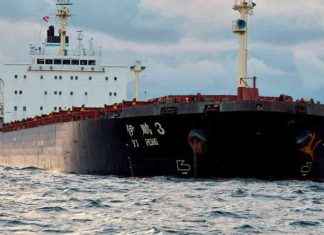Sign up for one of our email newsletters.
Updated 55 minutes ago
Economists see the world differently than non-economists. Often, that involves nothing more than our habit of looking not only at the most obvious facts of reality but also at the less obvious facts.
For example, when Americans buy more imported steel, everyone sees that some steelworkers in Pennsylvania and Ohio lose their jobs. Economists, of course, also see these job losses. But unlike most non-economists, economists see the jobs that are created in America as a result of greater imports. Economists see that foreigners use dollars earned selling steel to us to buy American exports or to invest in America. Each of these uses creates jobs in America.
Also like others, economists see the heartache, headache and hardship that often come with job loss. Yet unlike others, economists see that job losses occur anytime economic change occurs. And foreign trade is not a unique source of economic change. Shrinking or even stopping foreign trade will do nothing to prevent American consumers from changing their spending patterns and, hence, will do nothing to prevent American workers from losing particular jobs.
An even deeper and more counterintuitive way that economists see the world comes from our understanding of prices and wages. Many non-economists bemoan the fact that firefighters, EMTs and other first responders earn only a tiny fraction of the salaries paid to Ben Roethlisberger and other professional athletes. The typical thought is that entertaining spectators is less important than is putting out a raging house fire or rushing a stroke victim to the hospital.
Well, yes and no. Given the choice of a world with plenty of high-quality professional athletes but very few first responders, or very few professional athletes but plenty of high-quality first responders, almost everyone would choose the latter. Saving lives is indeed more important overall than is being entertained by pro athletes. But such an all-or-nothing choice isn't what we face.
The choice we face for almost any economic activity is whether to increase incrementally the amount of that activity. We ask, for example, how much value we get from adding an elite quarterback to our team compared to not doing so. And how much value do we get from adding an EMT to our fire and rescue squad compared to not doing so?
When these questions are asked, the answers surprise most people. Because the NFL quarterback skill set is so rare, an elite quarterback's value to NFL teams and their fans is huge. That's why the Steelers pay Big Ben so handsomely. But if lots of people could play quarterback as well as Big Ben, there'd be no reason to pay him millions.
In contrast, because the excellent-EMT skill set is not rare, we have many more EMTs than we have skilled quarterbacks. So an additional EMT's value to society is far less than is an additional quarterback's value. The pay of each reflects this fact.
And we should applaud, for this means our world is one with many highly skilled first responders, if only a small handful of highly skilled quarterbacks — which is much better than the reverse.
Donald J. Boudreaux is a professor of economics and Getchell Chair at George Mason University in Fairfax, Va. His column appears twice monthly.
Our editors found this article on this site using Google and regenerated it for our readers.





